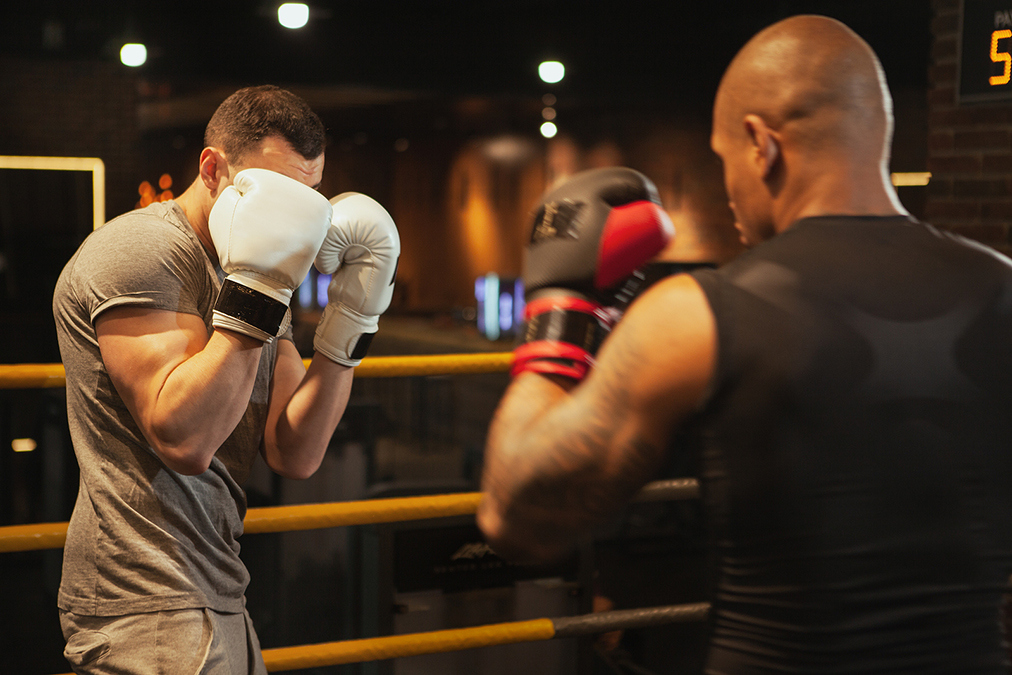 Plenty of research exists on the benefits of exercise for Parkinson’s disease patients.
Plenty of research exists on the benefits of exercise for Parkinson’s disease patients.
But the best exercise, according to a new study presented at the 2022 Annual Meeting of the American Academy of Neurology, may surprise you.
This is because it’s a sport that has often been claimed to cause Parkinson’s in the first place.
But now it’s been shown to drastically improve Parkinson’s.
Researchers at Rush University Medical Center noticed that although some studies had been published on the positive effects of boxing on the motor symptoms of Parkinson’s disease, no studies existed on its effects on non-motor symptoms such as depression and apathy.
Because they were aware that non-motor symptoms could be as destructive as the motor symptoms, they decided to investigate whether boxing could relieve both motor and non-motor symptoms.
They were hoping that boxing could relieve apathy as this problem is extremely difficult to treat.
For their study, they recruited 14 Parkinson’s sufferers, who were all still independent but struggling with tremors, movement difficulties, walking problems, and poor posture. On average, they had suffered from Parkinson’s for 7.9 years.
Their average age was 62.2 years, and 57% of them were male.
They enrolled all their subjects in a 12-week community-based boxing program, and a neurologist administered a variety of questionnaires and examinations at the beginning and at the end of these 12 weeks.
This is what they discovered in the boxers:
-
1. They improved significantly on the MDS-Unified Parkinson’s Disease Rating Scale. This scale assesses the patient’s motor and non-motor experiences, motor complications, and includes a motor symptom examination.
2. They improved on the MDS Non-Motor Rating Scale. This scale assesses the severity and frequency of non-motor symptoms such as fatigue, urinary symptoms, muscle pain, and memory problems.
3. They improved on the Hamilton Depression Rating Scale.
4. There was, however, no change on the Lilli Apathy Rating Scale, the Parkinson’s Disease Questionaire-39 (a general quality of life assessment), and the Schwab and England Activities of Daily Living scale.
This means that boxing could improve their motor function, depression, anxiety, motivation, and pain, but not their apathy, general quality of life, and daily activities.
According to the scientists, boxing might be effective because it combines high intensity cardiovascular exercise with strength training, flexibility, footwork, and balance. As such, it is a better all-round solution than most exercise types.
In addition, there is a cognitive element to boxing because participants have to calculate the appropriateness of the different moves at different times.

 Overcoming IBD
Overcoming IBD Multiple Sclerosis
Multiple Sclerosis Banishing Bronchitis
Banishing Bronchitis Gum Disease Gone
Gum Disease Gone Overcoming Onychomycosis
Overcoming Onychomycosis Neuropathy No More
Neuropathy No More The Prostate Protocol
The Prostate Protocol Brain Booster
Brain Booster
 Ironbound
Ironbound
 Solution for Shingles
Solution for Shingles
 The Bone Density Solution
The Bone Density Solution
 The Ultimate Healing Protocol
The Ultimate Healing Protocol
 The Parkinson's Protocol
The Parkinson's Protocol
 The Chronic Kidney Disease Solution
The Chronic Kidney Disease Solution
 Overthrowing Anxiety
Overthrowing Anxiety The Fatty Liver Solution
The Fatty Liver Solution The Hypothyroidism Solution
The Hypothyroidism Solution
 The End of Gout
The End of Gout The Blood Pressure Program
The Blood Pressure Program
 The Oxigized Cholesterol Strategy
The Oxigized Cholesterol Strategy
 Stop Snoring And Sleep Apnea Program
Stop Snoring And Sleep Apnea Program
 The Arthritis Strategy
The Arthritis Strategy The Vertigo & Dizziness Program
The Vertigo & Dizziness Program The 3-Step Diabetes Strategy
The 3-Step Diabetes Strategy Hemorrhoids Healing Protocol
Hemorrhoids Healing Protocol The Erectile Dysfunction Master
The Erectile Dysfunction Master Weight Loss Breeze
Weight Loss Breeze The IBS Program
The IBS Program The Insomnia Program
The Insomnia Program The Migraine and Headache Program
The Migraine and Headache Program The Neck Pain Solution
The Neck Pain Solution The Menopause Solution
The Menopause Solution The Ejaculation Master
The Ejaculation Master The TMJ Solution
The TMJ Solution The Acid Reflux Solution
The Acid Reflux Solution The Fibromyalgia Solution
The Fibromyalgia Solution The Psoriasis Strategy
The Psoriasis Strategy